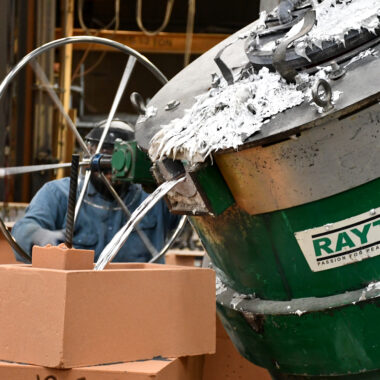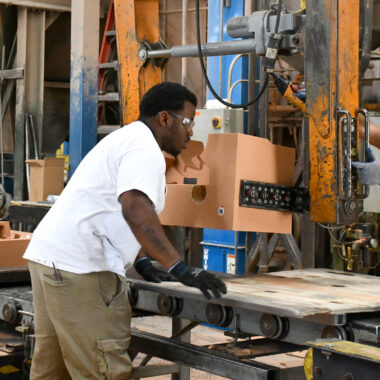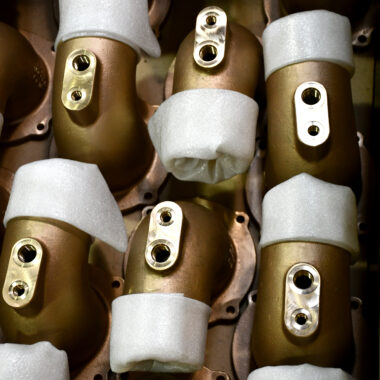Understanding About Aluminum Casting: Techniques Demystified
Understanding About Aluminum Casting: Techniques Demystified
Blog Article
Crafting Excellence: Exactly How to Attain High-Quality Aluminum Castings Each Time
In the realm of aluminum spreading, the search of perfection is a continual trip that needs a careful strategy and an eager understanding of the complexities entailed. Attaining regular top quality light weight aluminum spreadings requires an extensive grasp of the procedures, from picking the proper alloy to implementing specific mold designs and meticulously controlling spreading criteria.
Recognizing Aluminum Casting Processes
Aluminum casting procedures, necessary in the production sector, entail the complex change of liquified aluminum right into strong forms via a series of carefully regulated steps. Understanding these procedures is paramount to attaining high-grade light weight aluminum spreadings consistently - about aluminum casting. The primary methods used in light weight aluminum spreading are pass away casting, sand spreading, and financial investment casting

Each of these procedures has its advantages and is picked based upon aspects like complexity, volume, and desired surface of the aluminum spreading. about aluminum casting. Comprehending the intricacies of these approaches is crucial for makers intending to create top notch aluminum spreadings consistently
Selecting the Right Aluminum Alloy
Selecting the ideal aluminum alloy is a vital choice in the production of top quality aluminum castings. When choosing an aluminum alloy for spreading, it is necessary to think about the certain demands of the application to ensure optimum performance.
One of the most frequently made use of aluminum alloys for casting is A356 - about aluminum casting. For applications calling for high toughness, 7075 aluminum alloy is a popular option due to its exceptional strength-to-weight ratio.
In addition to mechanical homes, factors to consider such as cost, accessibility, and post-casting procedures should likewise affect the choice of the ideal aluminum alloy. By meticulously reviewing these factors, manufacturers can make sure the production of premium aluminum castings that meet the preferred requirements.
Applying Correct Mold And Mildew Layout
Developing an effective mold and mildew layout is essential for making sure the effective production of top quality aluminum castings. Proper browse around these guys mold and mildew layout plays a substantial duty in attaining the wanted qualities official source of the end product. To carry out an effective mold and mildew layout, aspects such as product circulation, cooling rates, and part geometry have to be meticulously considered.
One trick element of mold style is making sure appropriate filling and solidification of the light weight aluminum within the mold cavity. This entails creating runner and gating systems that promote smooth metal circulation and stop defects such as air entrapment or insufficient dental filling. In addition, integrating air conditioning channels right into the mold and mildew style aids manage solidification prices and decrease the risk of porosity or shrinking defects.

Controlling Spreading Parameters

Ensuring Post-Casting Quality Checks
To preserve the high top quality of light weight aluminum spreadings, thorough post-casting quality checks are crucial. After the casting process is completed, it is crucial to make sure that the last products fulfill the wanted specs and requirements.
Dimensional precision is an additional important element that should be verified during post-casting top quality checks. Measurements of key measurements and resistances ought to be required to verify that the castings conform to the called for specs. Additionally, mechanical homes such as hardness, tensile toughness, and effect resistance may require to be evaluated via material screening to learn the facts here now make sure that the castings have the required toughness and toughness for their designated application.
Verdict
Finally, achieving top quality light weight aluminum spreadings needs a comprehensive understanding of the casting procedures, picking the suitable alloy, making mold and mildews efficiently, regulating spreading parameters thoroughly, and conducting post-casting high quality checks faithfully. By complying with these steps, manufacturers can constantly generate aluminum castings that satisfy the highest requirements of high quality and efficiency.
Accomplishing regular top quality aluminum castings requires an extensive grasp of the processes, from choosing the proper alloy to carrying out specific mold and mildew layouts and meticulously managing spreading criteria. The key approaches made use of in light weight aluminum casting are die spreading, sand spreading, and financial investment casting.
Investment casting, also known as accuracy casting, involves creating wax patterns that are covered in ceramic to create mold and mildews.Picking the ideal light weight aluminum alloy is a critical choice in the production of top quality aluminum castings.Guaranteeing specific control over spreading criteria is crucial for keeping uniformity and top quality in aluminum casting manufacturing.
Report this page